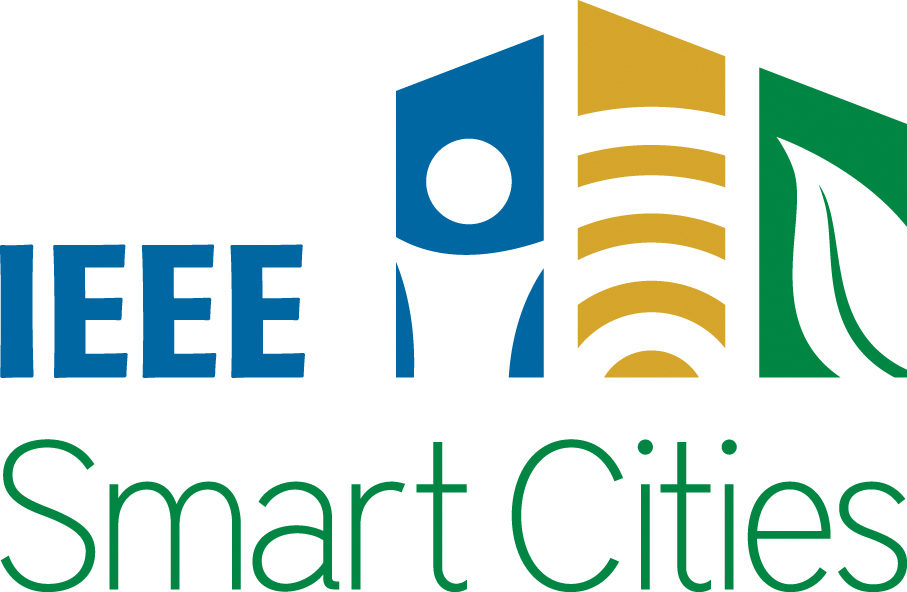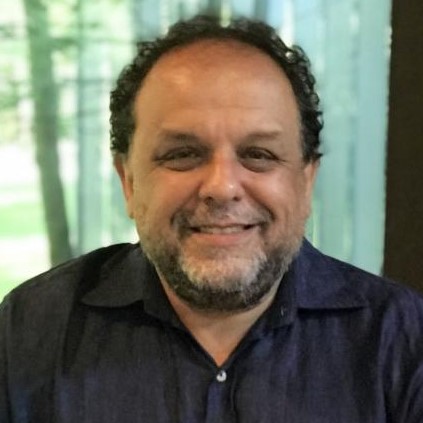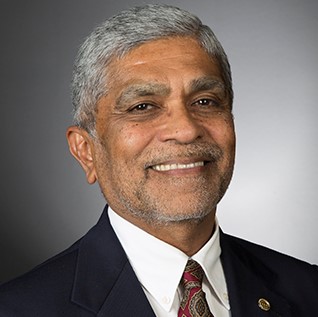Panel Sessions
Panel 1 – Towards Digitally Advanced Water networks
Critical water infrastructure in the United States relies on the smooth operation of more than 100,000 water and wastewater facilities of different sizes. Water utilities collect and store overwhelming amounts of data to ensure water and wastewater services are operated and delivered reliably and efficiently5. The data collected include real-time data from level sensors, flow monitors, and rain and stream gauges across the watershed and/or sewershed systems for basin-wide monitoring and flow control6. Utilities also collect water quantity and quality data in every treatment unit of drinking water treatment plants and wastewater treatment facilities. Facing the increasing challenges of ageing infrastructure, extreme weather events, and population redistribution, these data can be very valuable for utilities to make strategic, tactical, and operational predictions and decisions, so they can sustain targeted levels of service with acceptable risks. However, a recent Water Research Foundation (WRF) study reports show approximately 90% of this data is not used at all due to a lack of data sharing mechanisms, Big Data analytics tools, and staff resources and skills. The inherent value of such large amounts of unused (often referred to as dark data) is its significant potential to create new insights to improve operational efficiency and enhance regulatory compliance. Notably, these data may not only be of use to the utilities producing such data but can also be useful to utilities with resource limitations and constraints, such as rural or small utilities. Consequently, there is a need to develop an interoperable cyber-infrastructure for intelligent water systems at the national level. This panel summarizes the findings of a recent NSF workshop to that end. It will discuss the needs for such a digital water infrastructure and lay out a pathway for its design and implementation drawing on experiences in other infrastructure sectors.
Panel Moderator:
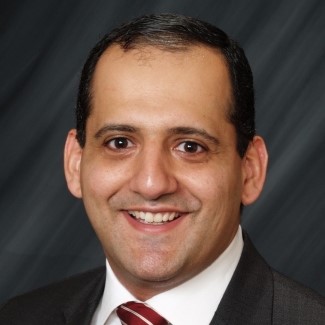
Amro M. Farid
Prof. Amro M. Farid is currently an Associate Professor of Engineering at the Thayer School of Engineering at Dartmouth with a principal expertise in the application of control, automation & information technology to intelligent energy systems. He received his Sc. B. in 2000 and his Sc. M. 2002 from the MIT Mechanical Engineering Department. He went onto complete his Ph.D. degree at the Institute for Manufacturing within the University of Cambridge (UK) Engineering Department in 2007. He has varied industrial experiences from the automotive, semiconductor, defense, chemical, and manufacturing sectors. In 2010, he began his academic career at the Engineering Systems & Management department at the Masdar Institute of Science & Technology in Abu Dhabi, UAE.
Panelists:
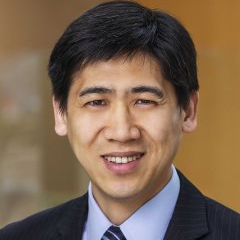
Zhiyong Jason Ren
Prof. Zhiyong (Jason) Ren is a full professor in the Department of Civil and Environmental Engineering and the Andlinger Center for Energy and the Environment at Princeton University. Prior to joining Princeton he was on faculty at University of Colorado for 10 years. Prof. Ren obtained his Ph.D in Environmental Engineering at Penn State in 2008. Before that he worked as an environmental engineer after graduating from Tianjin University. Prof. Ren holds a joint appointment with University of Colorado Boulder and a visiting professor position at the National Renewable Energy Lab (NREL).
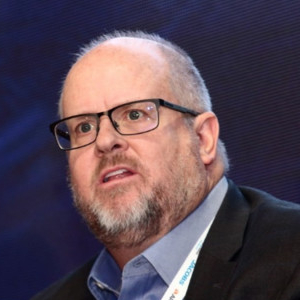
Barry Liner
Barry Liner is the Chief Technical Officer (CTO) of the Water Environment Federation (WEF). Dr. Liner is responsible for leading the WEF Water Science & Engineering Center, as well as innovation and resource recovery initiatives including the Innovation Pavilion at WEFTEC and WEF’s partnership with UNLEASH. Before joining WEF, Barry served as Assistant Professor and Director of International Engineering Programs at George Mason University, where he founded Engineers for International Development. Previously, he led change management efforts at AEM Corporation and managed support regulatory support projects for the USEPA’s Office of Water and IT projects for both public and private sector clients. He also served at the World Bank, developing a protocol to monitor and evaluate progress towards the water and sanitation targets of the Millennium Development Goals, and as a management consultant at Black & Veatch. Barry is a licensed Professional Engineer (PE) and Board-Certified Environmental Engineer (BCEE).
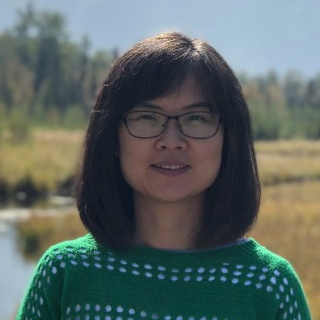
Ting Lu
Dr. Ting Lu is the Principal Engineer at Clean Water Services in Hillsboro, Oregon. Ting led the District‐wide initiative for development of the future of the digital utility roadmap, and led the implementation of data management and IT and OT integration effort. She served the Intelligent Water Focus Group Chair on Water Research Foundation LIFT program, and initiated the first international Intelligent Water Challenge to advance the adoption of smart systems into water sector.
Before joining Clean Water Services, Ting worked for the Metropolitan Sewer District of Greater Cincinnati and Black & Veatch where she led the integrated planning effort and developed a quantitative and innovative water quality program with smart sensors and data analytics.
Ting has authored over 100 papers and presentations nationally and internationally and coauthored several book chapters for the Water Environment Federation. She received her Ph.D. at the University of Cincinnati.
Panel 2 – Artificial Intelligence (AI) is the brain behind Fourth Industrial Revolution: What did it bring to Cities Smartification and its various processes?
The Fourth Industrial Revolution (4IR), or Industry 4.0, represents a new stage in the organization and control of the industrial value chain, fueled by real-time data and machine learning. The new capabilities of 4IR lead to ‘Smart Anything’ phenomena, from smart grid, smart energy to smart facilities (covering buildings, factories and plants), smart services, and of course smart cities (covering smart mobility, smart health, smart policing, smart government and citizen).
In this era of rapid cyber-physical systems technological advancement leading to abrupt changes in society and re-imagining of production through digitisation. 4IR aims to bridge between digital and physical environments and that need automation and robotics to provide muscle; cameras and sensors to provide senses; real-time data and ubiquitous wireless communications to provide nerves. But the real brain behind the 4IR is Artificial Intelligence (AI).
4IR will not merely affect almost every industry, but also raise our standard of living quality. And AI is going to transform the big data collected through the internet of things (IoT) into new wisdom. When smart cities and 4IR meet at a real point of intersection, it’s a true convergence of ideas, needs, concepts, innovations and technologies that combine to change the way we work, study and socialize in Society 5.0 which is backed by the power of science, technology and innovation (STI).
This expert panel session aims to bring together notable leaders from industry and government to dive deep into the intersection of 4IR and smart cities, discuss and debate what impacts AI will bring to smartify cities? And what ramifications AI will bring to enhance human abilities, to expand business possibilities, and to help energize life in the various processes in smartifying cities?
Panel Moderator:
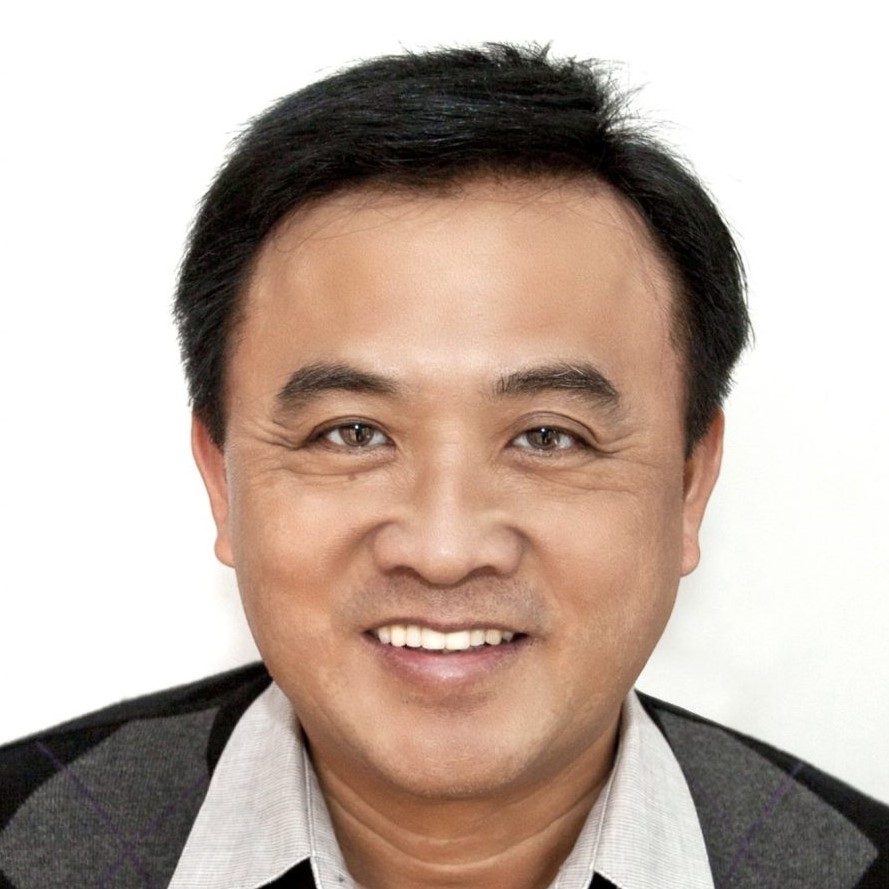
Andy Chen
Andy is the President, IEEE Technology and Engineering Management Society (TEMS) a member of Board of Governors 2018-2020 for IEEE Computer Society (CS). He is also a partner of REDDS Venture Investment partners which empower disruptive start-ups that scale worldwide and have billion dollars plus potential through team building, global business development, financing, mentoring, and strategy.
Andy is the President & CEO of a global consulting firm. The firm’s principle business is to provide consulting services for utility industry worldwide. Andy is a senior business advisor for several leading global consulting firms and enterprise software vendors. Andy held the position of the Chief Technology Officer and Vice President, Enterprise Strategy and Architecture of the largest Canadian-based electricity generator. He also served as the chair of ABB International User Board of Directors.
Andy participates in numerous global conferences as a member of advisory board members and organization committee. The notable conferences include: United Nations ITU AI for Good Summit, Digital Africa, Fintech Ideas Festival, World Computer Congress and World Telecom. Andy also chair several IEEE conferences such as International Symposium on Entrepreneurship and Intraprenuership 2020, IEEE/ITU Ai for Good 2020 and International Conference on Social Sciences and Intelligent Management 2020.
Andy received Bachelor of Science Degree in Electrical Engineering from University of Waterloo which is a top ranked engineering university in Canada.
Panelists:
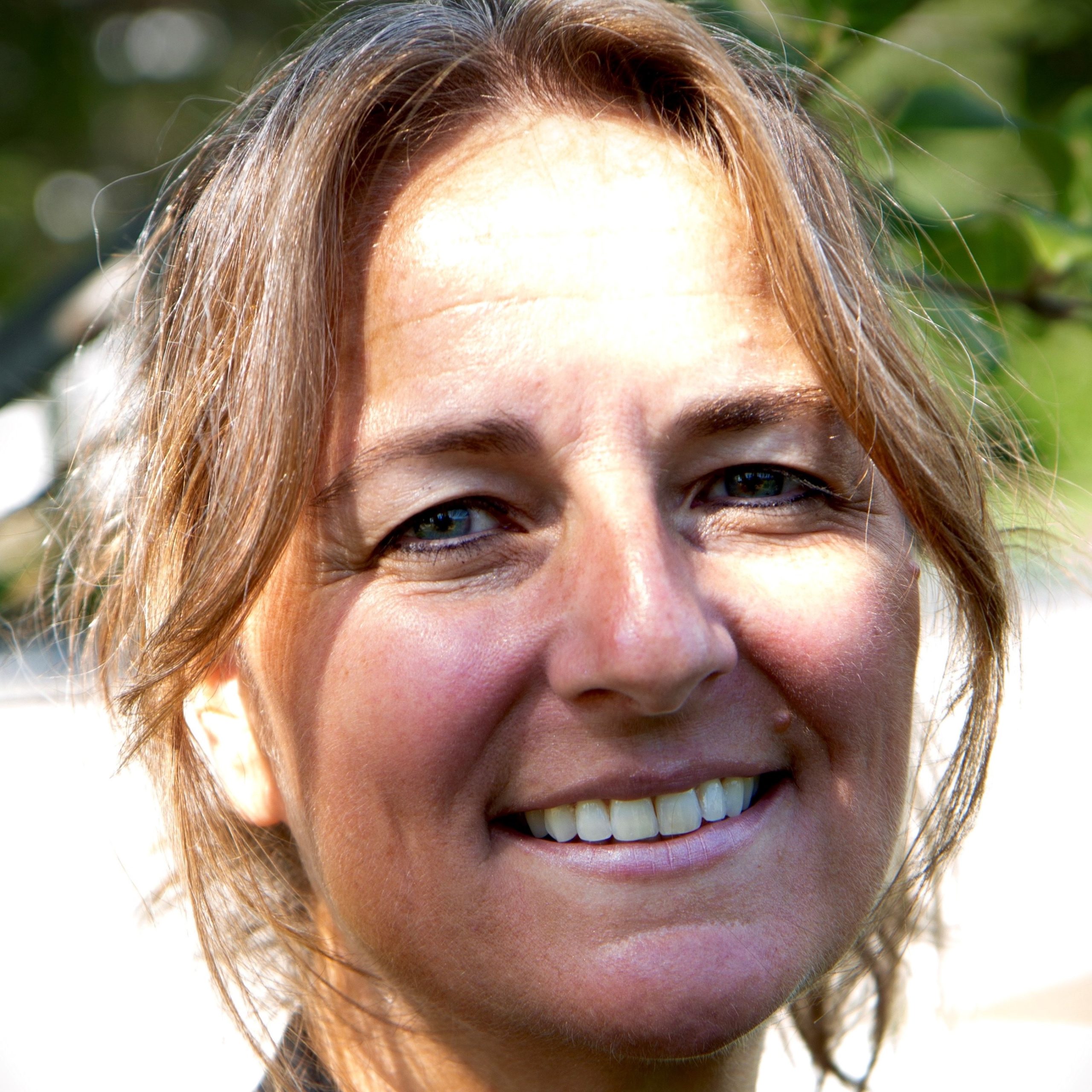
Anouk Kendall
Anouk Kendall is the founding President of Decentralised Energy Canada (DEC) and is one of North America’s leading authorities on Decentralised Energy (DE). Her 25 plus years of dedication to energy efficiency and clean energy in Europe and North America has positively impacted the growth of global DE markets.
Anouk is an accomplished energy professional that also proudly serves as a Peer Reviewer for the Green Municipal Fund (GMF) and Municipalities for Climate Innovation Program (MCIP) at the Federation of Canadian Municipalities.
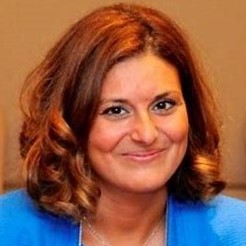
Cristina Bueti
Cristina Bueti is the ITU Focal Point on Environment and Smart Sustainable Cities. She is also the Counsellor of ITU-T Study Group 20 “Internet of things (IoT) and smart cities and communities (SC&C)” at the International Telecommunication Union (ITU). She also serves as TSB/ITU focal point for Latin America. Cristina Bueti graduated from the Faculty of Political Science, Law and International Cooperation and Development of the University of Florence, where she completed postgraduate studies in International Cooperation and Telecommunications Law in Europe. She also holds a specialization in Environmental Law with a special focus on Telecommunications. In 2003, Ms. Bueti built on her academic credentials by completing a specialized course in peacekeeping and international cooperation with special focus on telecommunications at the Faculty of Laws, University of Malta, before joining the International Telecommunication Union in Geneva in January 2004. As part of the International Women’s Day 2016, she was named as one of the twenty Geneva-based inspirational women working to protect the environment. She has authored over 40 reports on telecommunication issues. A native Italian speaker, Cristina is also fluent in English, French and Spanish.
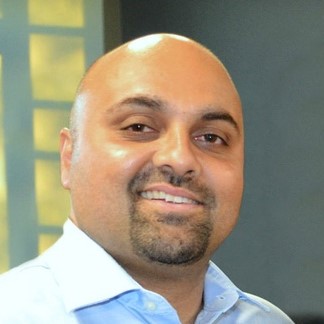
Neil Sahota
Neil Sahota (萨冠军) is an IBM Master Inventor, United Nations (UN) Artificial Intelligence (AI) subject matter expert, and Faculty at UC Irvine. With 20+ years of business experience, he works with clients and business partners to create next generation products/solutions powered by emerging technology.
His work experience spans multiple industries including legal services, healthcare, life sciences, retail, travel and transportation, energy and utilities, automotive, telecommunications, media/communication, and government. Moreover, Neil is one of the few people selected for IBM’s Corporate Service Corps leadership program that pairs leaders with NGOs to perform community-driven economic development projects.
For his assignment, Neil lived and worked in Ningbo, China where he partnered with Chinese corporate CEOs to create a leadership development program.
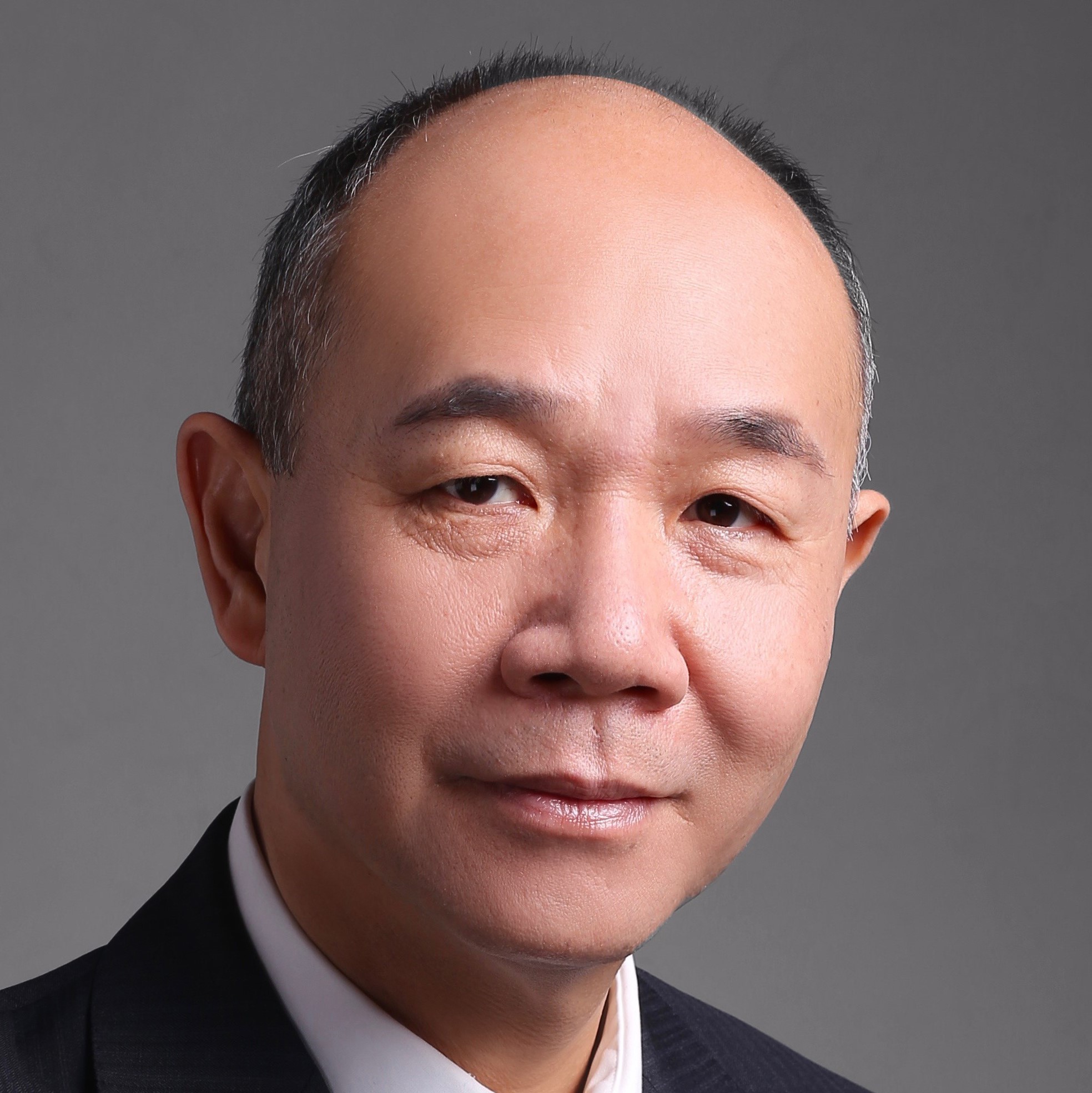
Jolly Wong
Dr Jolly Wong MSc MPhil DProf CEng FIET CITP FBCS FIEAust
Visiting Professor, Institute of Smart City, Shanghai University
Visiting Professor, School of Telecommunications Management, Beijing University of Posts and Telecommunications
Policy Fellow, Center for Science and Policy, University of Cambridge
Advisor, Hongkong Electric Co., Ltd.
Former Chief Telecommunications Engineer, Chief Technology Officer and Acting Assistant Commissioner (Information Systems) of the Hong Kong Police (HKP), Dr Wong had an oversight of ICT policies formulation, cybersecurity and rollout of strategic imperatives. He is the innovator of Finance-Operate-Own-Share “FOOS” business model, which has brought synergy by means of public and private sectors partnership to resolve major technology problems for HKP and to bring business benefits for both parties. The model is internationally recognized as an industry-wide success that has huge worldwide application opportunities. He clinched the Best Innovation at the International TETRA Awards 2012, and the Ken Goulding Prize for Professional Excellence 2015 from Middlesex University London.
Jolly has distinguished himself in the technology profession by receiving the Outstanding Contribution to TETRA Award 2008, for his stewardship of mission-critical, large-scale, complex technology programs. He continues to inspire and influence the mission critical industries globally; examples of quick followers to adopt same standards include Hongkong Electric, Shenzhen Police, Singapore Police Force, Royal Malaysia Police, and the UK Home Office.
Professionally, Jolly is former Vice President and Trustee of the Institution of Engineering and Technology “IET”, one of the largest qualifying body and learned society with over 165k members worldwide. He is an Advisory Board Member of the IET Academy and IET Smart Cities Journal Editor (Online ISSN 2631-7680). Jolly is renowned for his advocacy of professionalism in ICT industry and entrepreneurship among young engineers. Academically, he is a Visiting Professor for the Beijing University of Posts and Telecommunications, the Shanghai University, Policy Fellow for Centre for Science and Policy (CSaP) at University of Cambridge.
Jolly was appointed member of the Advisory Committee on Innovation and Technology (2015-17), to contribute in establishing a blueprint for innovation and technology development for HKSAR. In May 2019, Jolly was appointed an Advisor to the Hongkong Electric on policies and strategies related to innovation & technology, advanced metering infrastructure, and cybersecurity. He’s a weekly columnist ‘Tech in Synergy’ at the Hong Kong Standard.
Panel 3 – Effect of COVID-19 in Transportations: Discussion on the impacts, the usefulness of Data Dashboards and lesson learned
Panel Moderator:
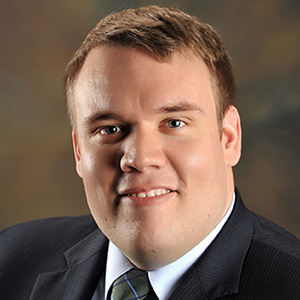
Aleksi Paaso
Dr. Aleksi Paaso is Director of Distribution Planning, Smart Grid and Innovation at Commonwealth Edison (ComEd), the electric utility serving Northern Illinois, including the city of Chicago. He is responsible for ComEd’s distribution planning activities, distributed energy resource interconnection, as well as Smart Grid strategy and project execution. Dr. Paaso is a senior member of the IEEE and Technical Co-Chair for the 2020 IEEE PES Transmission & Distribution Conference and Exposition. He holds a Ph.D. degree in Electrical Engineering from University of Kentucky.
Panelists:
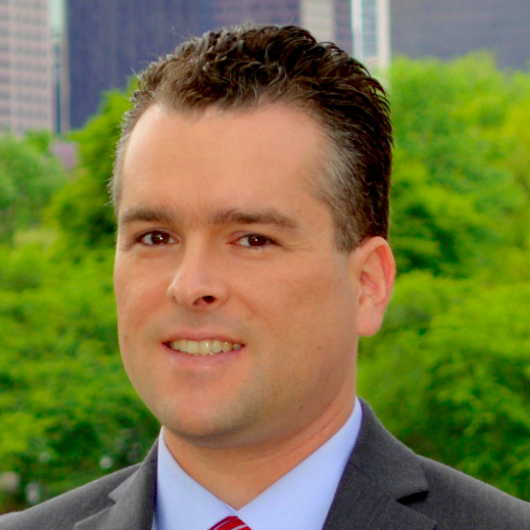
Jeff Schlegelmilch
Jeff Schlegelmilch is the Director for the National Center for Disaster Preparedness at Columbia University’s Earth Institute. In this role he oversees the operations and strategic planning for the center. He also oversees projects related to the practice and policy of disaster preparedness. His areas of expertise includes public health preparedness, community resilience and the integration of private and public sector capabilities. Prior his role at Columbia, he was the Manager for the International and Non-Healthcare Business Sector for the Yale New Haven Health System Center for Emergency Preparedness and Disaster Response. He was also previously an epidemiologist and emergency planner for the Boston Public Health Commission.
Mr. Schlegelmilch has overseen numerous initiatives integrating emergency preparedness and response across government and non-government sectors. This includes leading a study to determine the requirements for a national operational epidemiological modelling process, developing and delivering a national training program focused on evacuation and sheltering of people with medical dependencies, and developing new models for community resilience with a focus on children. He is also a FEMA certified Master Exercise Practitioner and has been in a leadership role on numerous discussion and operations-based exercises, including one of the largest municipal bioterrorism response exercises ever conducted.
He has advised leaders on preparedness systems and policy at various levels of government. He has published peer reviewed articles on topics ranging from the national funding streams for public health and medical preparedness, the integration of the private sector into disaster response, and improving the integration of complex analytical information into disaster operations. He has also been published as an Opinion Contributor by The Hill and Fortune and has been used as a subject matter expert for numerous media outlets.
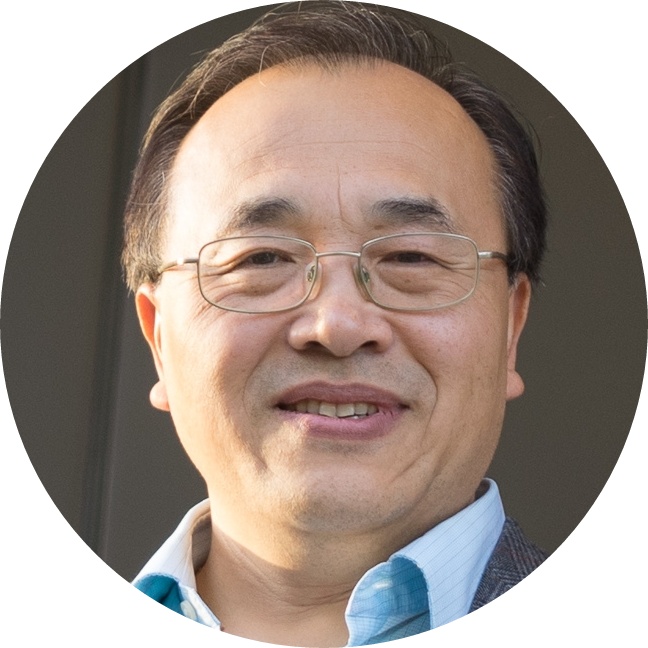
Yinhai Wang
Dr. Yinhai Wang is a professor in transportation engineering and the founding director of the Smart Transportation Applications and Research Laboratory (STAR Lab) at the University of Washington (UW). He also serves as director for Pacific Northwest Transportation Consortium (PacTrans), USDOT University Transportation Center for Federal Region 10 and visiting chair for the Traffic Information and Control Department at Harbin Institute of Technology. He has a Ph.D. in transportation engineering from the University of Tokyo (1998), a master’s degree in computer science from the UW, and another master’s degree in construction management (1991) and a bachelor’s degree in civil engineering (1989) from Tsinghua University in China. Dr. Wang’s active research fields include traffic sensing, e-science of transportation, big-data analytics, traffic operations and simulation, smart urban mobility, transportation safety, etc. He has published over 120 peer reviewed journal articles and delivered more than 130 invited talks and nearly 220 other academic presentations.
Dr. Wang serves as a member of the Transportation Information Systems and Technology Committee and Highway Capacity and Quality of Service Committee of the Transportation Research Board (TRB). He is currently a member of the steering committee for the IEEE Smart Cities and an elected governor for the American Society of Civil Engineers (ASCE) Transportation and Development Institute (T&DI), scheduled to serve as president of ASCE T&DI in 2018. He is a co-chair of the Third IEEE International Smart Cities Conference to be held in Wuxi China in 2017 and the ASCE International Conference on Transportation and Development to be held in Indianapolis in 2018. He was a principal investigator for 75 important research projects with a total amount of funding over 51 million dollars. Additionally, Dr. Wang is associate editor for three journals: Journal of ITS, Journal of Computing in Civil Engineering, and Journal of Transportation Engineering. He was the winner of the ASCE Journal of Transportation Engineering Best Paper Award for 2003.
Kaan Ozbay
K. Ozbay joined Civil and Urban Engineering at NYU Tandon School of Engineering and Center for Urban Science and Progress (CUSP) as a tenured full Professor at NYU on August 2013. He is currently the Director of the C2SMART Center (Tier 1 UTC funded by USDOT). Prior to that Professor Ozbay was a tenured full Professor at Rutgers University’s Department of Civil and Environmental Engineering where he joined as an Assistant Professor in July 1996. In 2008, he was a visiting scholar at the Operations Research and Financial Engineering (ORFE) Department at, Princeton University.
Dr. Ozbay is the recipient of the prestigious National Science Foundation (NSF) CAREER award. His research interests in transportation cover a wide range of topics including data analytics for advanced technology and sensing applications in smart cities, development of simulation models of large scale complex transportation systems, modeling and evaluation of traffic incident and emergency management, feedback based on-line real-time traffic control techniques, traffic safety, application of operations research techniques in network optimization and humanitarian inventory control, and transportation economics. He has co-authored 4 books and published approximately 400 refereed papers in scholarly journals and conference proceedings. Prof. Ozbay is also an Associate Editor of the ITS journal. Dr. Ozbay is the co-editor of a book titled “Dynamic Traffic Control & Guidance” published by Springer Verlag’s “Complex Social, Economic and Engineered Networks” series in 2013. He also serves as the Associate Editor of Networks and Spatial Economic journal and Transportmetrica B: Transportation Dynamics journal. Since 1994, Dr. Ozbay, has been the Principal Investigator and Co-Principal Investigator of 100 projects funded at a level of more than $20,00,000 by National Science Foundation, NJDOT, NYMTC, NY State DOT, New Jersey Highway Authority, USDOT, FHWA, VDOT, CUNY University Transportation Research Center (UTRC), Department of Homeland Security, USDOT ITS Research Center of Excellence.
Vijay Vittal
Regents Professor Vijay Vittal is the Ira A. Fulton Chair Professor (2005) and ASU Foundation Professor in Electric Power Systems at Arizona State University. Prior to ASU, Vittal was an Anson Marston Distinguished Professor at the Iowa State University, Electrical and Computer Engineering Department. In addition, Vittal was a Murray and Ruth Harpole Professor and director of the university’s Electric Power Research Center and site director of the National Science Foundation IUCRC Power System Engineering Research Center. He also served as the program director for power systems for the National Science Foundation Division of Electrical and Communication Systems in Washington, D.C., from 1993 to 1994. He was the editor-in-chief of the IEEE Transactions on Power Systems from 2005 to 2011.
Professor Vittal was elected to the U.S. National Academy of Engineering in 2004. In 2018, he received the IEEE Power and Energy Society Prabha. S. Kundur Power System Dynamics and Control Award and the Utility Variable-Generation Integration Group Achievement Award. In 2013, he was awarded the IEEE Herman Halperin Transmission and Distribution Technical Field Award. He also received the IEEE Power and Energy Society (PES) Outstanding Power Engineering Educator Award in 2000. He was elected an IEEE Fellow in 1997 and also was awarded the U.S. National Science Foundation Presidential Young Investigator Award in 1985.
Panel 4 – Achieving Decarbonization through Beneficial Electrification – Role of Smart Cities
Electrification is no longer a future dream. It’s here and it has the potential to benefit the whole world by reducing harmful emissions from
- Transportation (light, medium, and heavy transportation)
- Energy-efficient building and carbon-free infrastructure
- Electrifying heating
- Energy-neutral (Net Zero) and comfort-optimal buildings
- Renewable generation
- PV, Energy Storage, and Energy Transaction
Listen to a panel of experts discuss the intricacies of the smart city and what emerging energy technologies can do to save our planet!
Panel Moderator:
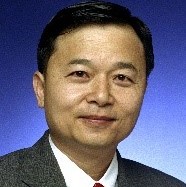
Wei-Jen Lee
Professor Wei-Jen Lee is a professor of the Electrical Engineering Department and the director of the Energy Systems Research Center at the University of Texas at Arlington.
He has been involved in the revision of IEEE Std. 141, 339, 551, 739, 1584, and 3002.8 development. He is the President Elect of the IEEE Industry Application Society (IAS), a Prominent Lecturer (PL) of IEEE IAS (2019-2020), and an editor of IEEE Transactions on Industry Applications and IAS Magazine. He is the project manager of IEEE/NFPA Collaboration on Arc Flash Phenomena Research Project.
Prof. Lee has been involved in research on Utility Deregulation, Renewable Energy, Arc Flash Hazards and Electrical Safety, Smart Grid, MicroGrid, Industrial Internet of Things (IIoT) and Virtual Power Plants (VPP), AI for Load, Price, and Wind Capacity Forecasting, Power Quality, Distribution Automation, Demand Response, Power Systems Analysis, Short Circuit Analysis and Relay Coordination, Distributed Energy Resources, Energy Storage System, PEV Charging Infrastructure Design, AMI and Big Data, On Line Real Time Equipment Diagnostic and Prognostic System, and Microcomputer Based Instrument for Power Systems Monitoring, Measurement, Control, and Protection.
Prof. Lee is a Fellow of IEEE and registered Professional Engineer in the State of Texas.
Panelists:
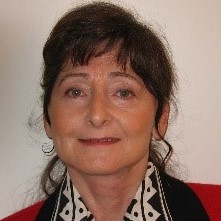
Veronika Rabl
Dr. Veronika Rabl is a consultant in the Washington, DC, area, specializing in energy technology and policy. She has advised electric energy companies and governments around the world and has been an invited speaker and lecturer at many events in the U.S. and abroad. She is an author, coauthor, and editor of numerous publications.
Until 2001 Dr. Rabl served as General Manager and Director at the Electric Power Research Institute (EPRI). She established EPRI’s demand response technology portfolio, including energy storage, energy management, and distributed load control systems. She then held a series of positions with increasing technical, business, and policy responsibilities, spanning both sides of the meter — demand-side management, integrated resource planning, engineering load forecasting, electric transportation, power electronics and power quality, distribution systems, and metering.
Dr. Rabl is a Senior Member of IEEE. She is past Chair of IEEE-USA Energy Policy Committee and member of the IEEE PES Industry Technical Support Leadership Committee. Veronika is a recipient of the IEEE-USA Professional Achievement Award for Individuals.
Veronika holds an M.S. from the Weizmann Institute, Israel, and a Ph.D. from the Ohio State University.
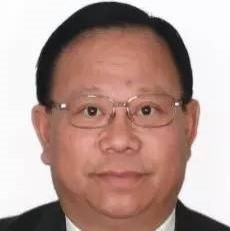
Loi Lei Lai
Professor Loi Lei Lai received Bachelor of Science with First Class Honours in 1980, Doctor of Philosophy in 1984 and Doctor of Science in 2005 from University of Aston, UK and City, University of London, UK, respectively, all in Electrical and Electronic Engineering. Presently he is University Distinguished Professor at the Guangdong University of Technology, China. He was Director of Research and Development Centre, State Grid Energy Research Institute, China; Vice President for IEEE Systems, Man, and Cybernetics Society (IEEE/SMCS); Professor & Chair in Electrical Engineering at City, University of London; and a Fellow Committee Evaluator for IEEE Industrial Electronics Society. He was awarded IEEE Power and Energy Society (IEEE/PES) United Kingdom and Republic of Ireland Power Chapter Outstanding Engineer Award in 2000, IEEE/PES Energy Development and Power Generation Committee Prize Paper in 2006 & 2009, IEEE/SMCS Most Active Technical Committee Award in 2016. He is Fellow of IET and IEEE. His current research areas are in smart cities and smart grid.

Oladipupo “Ladi” Ogunnubi
Short bio:
Oladipupo “Ladi” Ogunnubi is a member of the Emerging Technology group in ComEd Smart Grid where he leads and supports the execution of beneficial electrification projects as well as deployment of emerging technologies on ComEd’s distribution grid. He joined ComEd/Exelon in 2015 as a Transmission Planning Engineer performing studies to ensure the long-term reliability of the high voltage network. In 2018, he transitioned to Exelon’s Corporate Strategy team where he helped shape Exelon’s Beneficial Electrification strategy and supported the company’s Fleet Electrification endeavors. Prior to joining ComEd/Exelon, he worked at BAE Systems supporting components engineering, systems integration, and testing efforts on various state-of-the-art defense and aerospace programs for several years.
Ladi received his B.S. in electrical engineering from Clarkson University in 2009 and obtained his M.S. and M.B.A. degrees in power systems engineering and corporate governance, respectively, at University of Illinois, Urbana-Champaign in 2015.
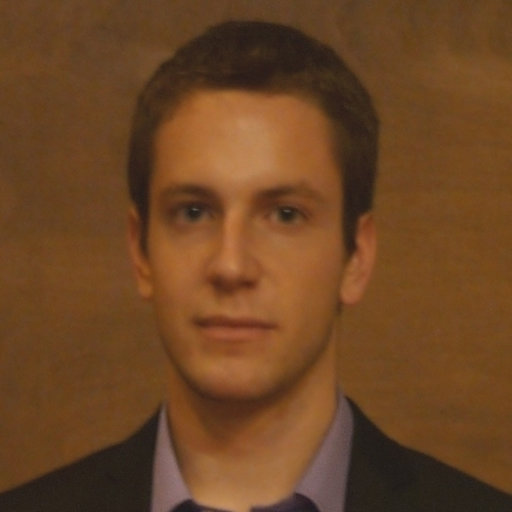
Jérôme Le Dréau
Short Bio:
Dr. Jérôme Le Dréau is an associate professor at La Rochelle University, France, specialized in energy efficiency of buildings. He completed his PhD thesis and a two-year post-doc at Aalborg University, Denmark, and he has been associate professor at La Rochelle University since 2015. His current research areas are in performance of building components, net-zero energy buildings and energy flexibility. He developed expertise in buildings and grid interaction, in the acceptability of occupants and in the evaluation of the environmental impact of building operation.
Jérôme Le Dréau has also participated in the international project IEA EBC Annex 67 related to the energy flexibility of buildings and is work-package leader of IEA EBC Annex 82 (Energy Flexible Buildings Towards Resilient Low Carbon Energy Systems).
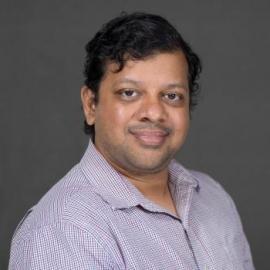
Ram Rajagopal
Short Bio:
Dr. Ram Rajagopal is an associate professor of Civil and Environmental Engineering at Stanford University. He is the founder and director of the Stanford Sustainable Systems Lab. His primary research focus is on advancing the design, optimization and data-driven modelling of electric power systems. His work involves creating novel sensing and control platforms, robust data processing algorithms and dynamic statistical decision methods. He has also extensively worked on sensing infrastructure systems and transportation networks.
He received his Ph.D in Electrical Engineering and Computer Sciences and M.A. in Statistics from the University of California, Berkeley. He has specialized in creating and deploying large sensing systems, and using the generated data together with novel statistical algorithms and stochastic control to achieve sustainable transportation, energy and infrastructure networks.
Panel 5 – Urban Analytics for Smart Cities: How to solve urban mobility problems through data sharing from heterogeneous systems?
A key technological challenge of smart cities is the need to process in real-time extremely large amounts of complex, heterogenous and geographically distributed sources of data (citizens, traffic, vehicles – hybrid or electrical, city infrastructures, IoT devices, smart grid, etc.). This data analytics has a crucial role to play in helping these smart cities to become zero-carbon, improve urban mobility, and better manage their infrastructure in a secure, sustainable and cost-effective manner. For example, can you imagine a city where data is shared between city, transportation systems and cars in real time to implement intelligent traffic management, advanced driver assistance systems, helping to optimize connections between modes of transport for faster travel times, reduce the costs of operation, and increase convenience through improved information services for users. The potential is immense, but there are still different challenges to be addressed (data integration, data privacy, etc.) Listen to a panel of experts discuss what and how data analytics can help to solve urban mobility problems in smart cities.
Panel Moderator:
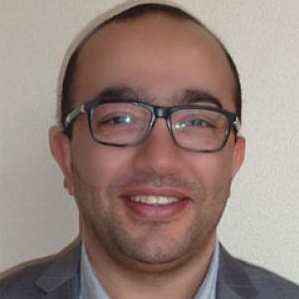
Sidi Mohammed Senouci
Sidi-Mohammed Senouci received his Ph.D. in Computer Science in October 2003 from the University of Paris 6 and his HDR from INP Toulouse, France. From 2004 to 2010, he was researcher in Orange Labs. Since 2010, he is professor at University of Bourgogne and director one of its Labs, DRIVE, since 2017. He participated or still participates to several
national and European-wide research projects. Among them FP7 FOTsis, ITEA CarCoDe, ITEA FUSE-IT and FUI PARFAIT. He holds 7 international patents and published his work in major IEEE conferences and renowned journals. He was co-chair in VehiCom2009, IEEE GC2010, IEEE WCMC2010, IEEE GC2011, IEEE ICC2012 and IEEE ICC2017. He also acted or still acts as TPC member of different IFIP, ACM or IEEE conferences and workshops. He was the Chair of
IEEE ComSoc IIN Technical Committee, TCIIN (2014-2016). He is part of the editorial board of IEEE Network Magazine and serves as Guest Editor of premium journals, such ADHOC journal, IEEE Network Magazine, IEEE Access, IEEE Vehicular Technology Magazine, IEEE IoT-AHSN-TC Newsletter and the French journal REE. He is also a Member of IEEE and the ComSoc and Expert Senior of the French society SEE (Society of Electricity and Electronics).
Panelists:
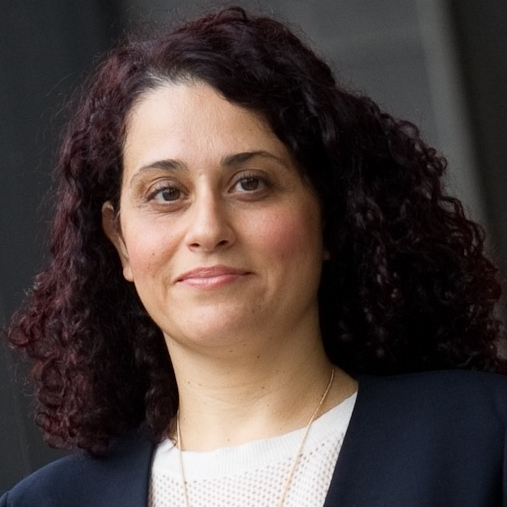
Melike Erol-Kantarci
Short Bio:
Melike Erol-Kantarci is Tier 2 Canada Research Chair in AI-enabled Next-Generation Wireless Networks and associate professor at the School of Electrical Engineering and Computer Science at the University of Ottawa. She is the founding director of the Networked Systems and Communications Research (NETCORE) laboratory. She has over 140 peer-reviewed publications which have been cited over 5000 times and she has an h-index of 36. Recently, Dr. Erol-Kantarci was selected for the 2019 list of “N2Women: Stars in Computer Networking and Communications” along with 8 other distinguished scientists. She has received several best paper awards including the IEEE Communication Society Best Tutorial Paper Award in 2017. She is the co-editor of three books on smart grids, smart cities and smart transportation. She has delivered 40+ plenary talks, tutorials and seminars around the globe. Dr. Erol-Kantarci is the Specialty Chief Editor for the Smart Grid Communications Section of the journal “Frontiers in Communications and Networking”. She is an editor for several IEEE journals and she has acted as the general chair and the technical program chair for many international conferences. She is a steering committee member for the IEEE Sustainable ICT Initiative. Her main research interests are AI-enabled wireless networks, 5G and 6G wireless communications, smart grid, electric vehicles and Internet of Things (IoT). Dr. Erol-Kantarci is a senior member of the IEEE.
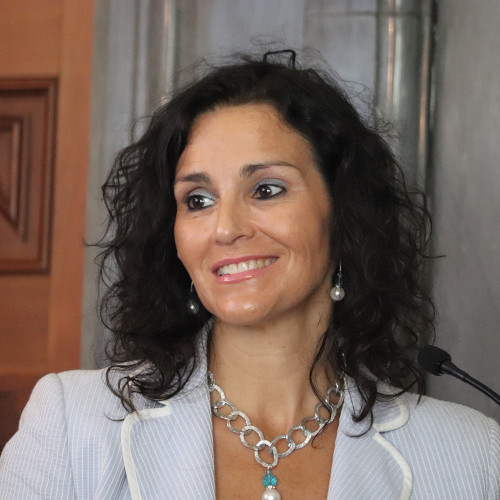
Dolores Ordóñez
Dolores Ordóñez (AnySolution, Spain) holds a degree in Law by Deusto University (Spain), is specialized in European Community Law and holds an Executive Master in Innovation. She has been the head of European projects in different public administrations in the Balearic Islands and in the private sector. She is involved in different EU projects as STEVE (smartmobility H2020 GV10). She is evaluator for the European Commission. As expert in tourism and SmartCities, she is the vicepresident of the international cluster of Tourism, TURISTEC and vicepresident of the technological platform PLANETIC. She is the coordinator of the Smart Cities Working Group with the Spanish Technological Platform, es.Internet and a member of the Smart Destinations WG at the University of the Balearic Islands. As technical director of AnySolution she is in charge of strategic innovative plans for public and private entities and the development of the IoT platform NADIA.
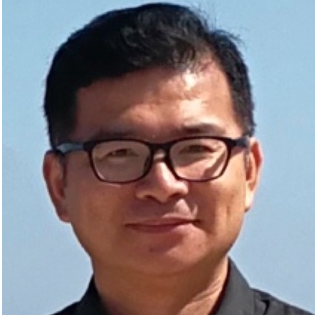
Rong Su
Rong Su (Nanyang Technological University, Singapore) received the Bachelor of Engineering degree from University of Science and Technology of China in 1997, and the Master of Applied Science degree and PhD degree from University of Toronto, in 2000 and 2004, respectively. He was affiliated with University of Waterloo and Eindhoven University of Technology before he joined Nanyang Technological University in 2010. Currently, he is an associate professor in the School of Electrical and Electronic Engineering. Dr. Su’s research interests include multi-agent systems, cybersecurity of discrete-event systems, supervisory control, model-based fault diagnosis, control and optimization in complex networked systems with applications in flexible manufacturing, intelligent transportation, human-robot interface, power management and green buildings. In the aforementioned areas he has more than 200 journal and conference publications, and 2 granted USA/Singapore patents. Dr. Su is a senior member of IEEE, and an associate editor for Automatica, Journal of Discrete Event Dynamic Systems: Theory and Applications, and Journal of Control and Decision. He was the chair of the Technical Committee on Smart Cities in the IEEE Control Systems Society in 2016-2019, and is currently the chair of IEEE Control Systems Chapter, Singapore.
Panel 6 – Cities Smartification Strategies and Planning (in time of pandemic): an updated view from the local governance boards
The global Covid-19 pandemic has cast the case for smart cities in a new light. As cities continue to build the underlying data and technology infrastructure for smart systems, the pandemic has created an immediate need for a multi-jurisdictional data and operational approach to managing a public health crisis using the infrastructure in place right now. We will hear from representatives of the five IEEE Core Smart Cities about how the local governments and civic ecosystems have responded, how systems are (or are not) coordinated regionally for effective response, and what opportunities or needs have come to light in terms of planning for the future.
Panel Moderator:
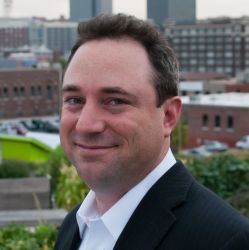
Aaron Deacon
Aaron Deacon is the founder and managing director of KC Digital Drive, a nonprofit civic organization with a mission to make Kansas City a digital leader and help cities adapt to disruptive technology change. He works with mayors, entrepreneurs and civic leaders in Kansas City and around the world to help build ecosystems that connect infrastructure, emerging technology and social impact. He combines a high-level strategic approach with boots-on-the-ground project implementation and management in smart cities, civic tech, digital inclusion, digital health, and education. He earned a master’s degree in social science from the University of Chicago and a bachelor’s degree in history from the University of Dallas.
Panelist:

Mauricio Espinosa
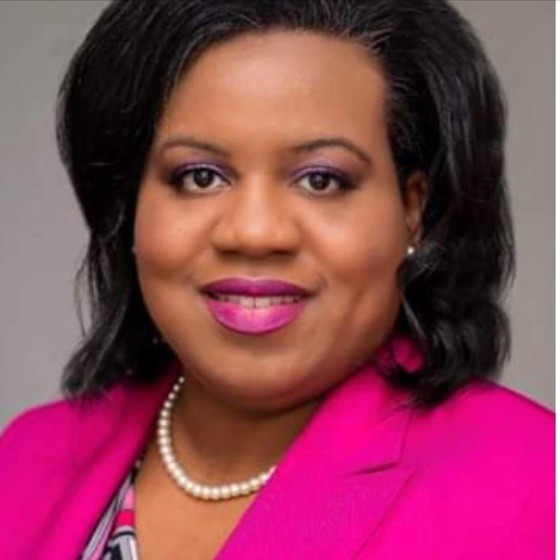
Melissa Robinson
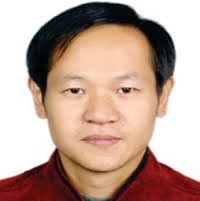
Xiao-Jun Wu
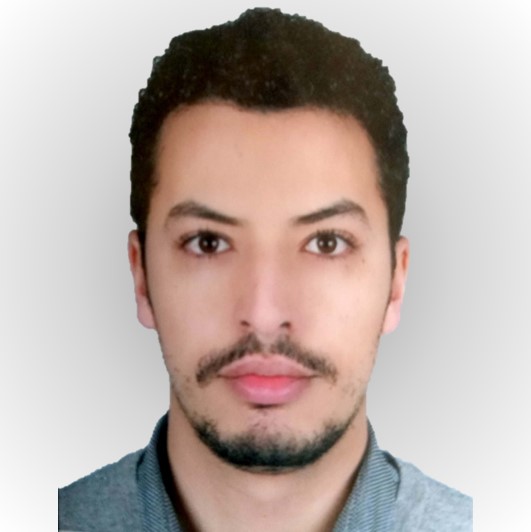
Khalid Ezzemani
Khalid Ezzemani, Innovation & Business Development Engineer and Founder of “Engineers vs Covid19” divided into Solidarity Lab Cluster and 3D printing cluster, had mechanical and structures engineering studies at ENSAM MEKNES, Engineering and Consulting Management at ENCG Settat and Entrepreneurship Camp at Liege University and Wallonia-Brussels International City. Currently working on fablab construction and innovation management.

Andrea Molinari

Elio Salvadori
Panel 7 – Digital Pandemic Surveillance and Management: COVID-19 and future pandemics
COVID19 has put a new practice in the spotlight: contact tracing. The goal of contact tracing is to slow down the spreading of a pandemic by rapidly identifying people who have been in close contact with infectious people, so to direct them towards precautionary measures: testing, self-quarantining, etc.
Contact tracing has been performed by qualified humans in past pandemic events, such as the recent Ebola epidemics, but COVID19 has seen the emergence of a new technique: digital contact tracing. Leveraging the ubiquity of smartphones equipped with GPS or proximity sensors, digital contact tracing seeks to complement, simplify and amplify traditional contact tracing. Digital contact tracing has received its fair share of criticism from security and privacy experts, though: pushing a whole population to willfully carry around a personal tracking technology, in exchange for unverified public health benefits, is not to be taken lightly.
This panel will bring together experts from different fields, from epidemiology to security and privacy, to discuss the pro and the cons of digital contact tracing, draw a summary of its (un)success so far, and elaborate on the future of the technology,
Panel Moderator:
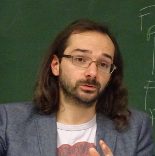
Luca De Feo
Short bio:
Luca De Feo is a Researcher at IBM Research Zürich, on leave from the Université de Versailles where he is Associate Professor since 2011. He graduated from École Normale Superieure de Paris in 2007, and went on to obtain a PhD in Computer Science from École Polytechnique (France) in 2010. He works on Number Theory, Cryptography, Computer Algebra and Mathematical Software, and is an Open Source and Open Research advocate. He has been involved in several French and European research projects, including the H2020 project OpenDreamKit focusing on Open Source Mathematical Sofware. He is co-inventor of the isogeny-based post-quantum key exchange scheme SIKE, one of the leading candidates in NIST’s standardization process for post-quantum cryptographic primitives. Within IBM, he was involved in the development of Digital Health Pass, an integrated solution to help business ensure customer and workforce safety during the COVID pandemic, in a privacy-preserving way.
Panelist:
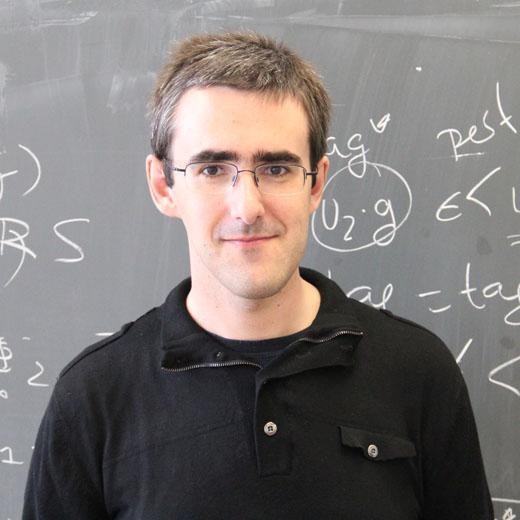
Olivier Blazy
Short bio:
Olivier Blazy is an Associate Professor at the University of Limoges in France. He did his Ph.D. in 2012 in the Ecole Normale Supérieure crypto group, on proofs of knowledge and their application to blind signatures and authenticated key exchange. He spent 2 years in the “Foundation of Cryptography” group at the Ruhr-University in Bochum (Germany) where he worked in the area of provable tight security. Since then, he leads the master level security program in Limoges, and conducts research on the areas of implicit cryptography, identity-based communications and code-based cryptography to propose post-quantum cryptosystems. He is involved in several french/european project on cryptography and security of communications, he is the lead PI of an ANR grant (French National grant) named “IdFix” on IDentity-based cryptography For Information and eXchange. He has proposed 6 different candidates for the NIST post quantum standardisation process. 2 of which (BIKE, HQC) are still in the running in the final stage. Since September 1st, he is co-supervising the French work-group on Codes and Cryptography.
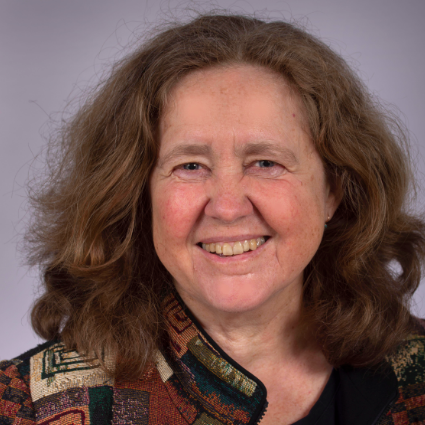
Mirjam E Kretzschmar
Short Bio:
Mirjam Kretzschmar is a professor for Dynamics of Infectious Diseases at the University Medical Center of Utrecht University, in Utrecht, The Netherlands. After studying mathematics in Germany, she specialised on applying mathematical modelling to understand the dynamics of infectious diseases in populations. She is particularly interested in and how contact patterns shape infectious disease epidemiology, and how they can be modelled as dynamic networks. She uses mathematical modelling to analyse the impact of public health interventions on infectious diseases. Recently, she applied mathematical modelling to assess the impact of various interventions for mitigating the spread of COVID-19.
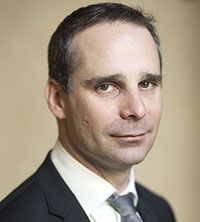
Gwendal Le Grand
Short bio:
Dr. Gwendal Le Grand is the Deputy Secretary-General of the French data protection authority CNIL (Commission Nationale de l’Informatique et des Libertés). He is also the coordinator of the Technology Subgroup of the European data protection board (EDPB), the liaison officer for the EDPB to the ISO working group developing privacy standards, and is a member of the Advisory Group of ENISA. Gwendal Le Grand received his PhD in computer science from the University of Paris 6 in July 2001.
